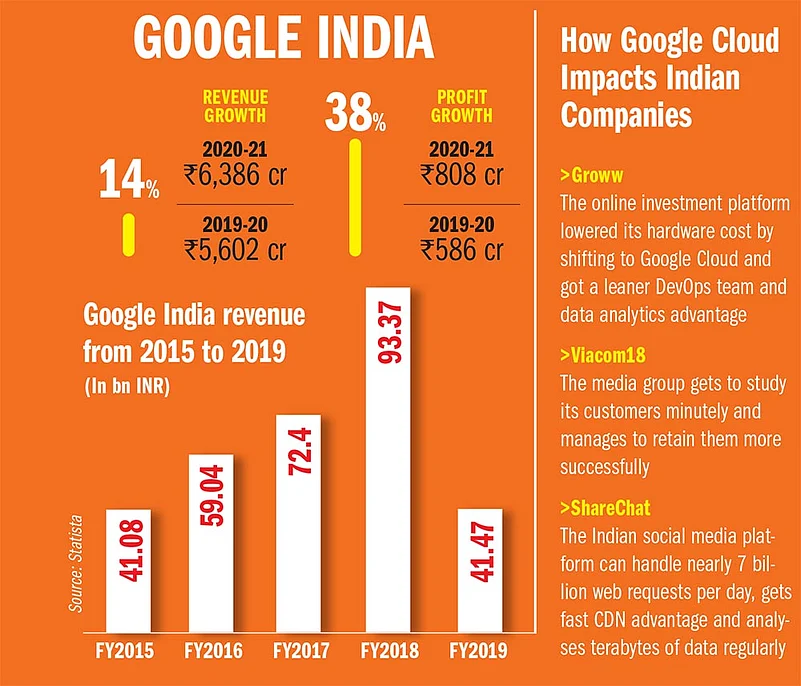It might sound more like a marketing spiel than a business mantra but Aloke Bajpai, co-founder and CEO of travel portal Ixigo, says that what helped him and his company get past the pandemic was “empathy”. He doesn’t use the word in vain.
One weekend, Ixigo’s payment gateway account ran out of money because the company was giving refunds to everyone cancelling their bookings during the first wave of Covid-19. New bookings were far and few between and on most days, there were none. “We had to crowdsource money from our employees to put money into that account. We collected about Rs 40-50 lakh to return to our customers,” he says.
The lockdown was a big blow for Ixigo and business was down by more than 90%. Bajpai and his partner, Rajnish Kumar, the company’s co-founder and chief product and technology officer, spent sleepless nights. They had no information about the virus or how long they will have to deal with it—it could be months or even years. The thought was scary. The company had just turned profitable—a turning point for start-ups that live from one funding round to another to run operations and acquire users—before the lockdown. Ixigo was and remains different even as it readies to get listed on the bourses.

Betting on a Higher Empathy Quotient
It was one of the last and the least-funded start-ups in the travel app category. Most of the market was with companies like MakeMyTrip and Yatra. “We have lived through the last 14 years and we have lived through the global financial crisis (of 2008),” says Bajpai with a lot of pride.
When you survive without much money or don’t have the first-mover advantage, you rely on “empathy” from investors, customers and employees, he adds. “There were times when we ran out of money but we never ran out of ideas or ambition. We never wanted growth for the sake of it. We always looked at it from a customer experience lens and in terms of value addition to the lives of travellers,” says Bajpai.
Perhaps that is why the company decided to return money to the travellers who wanted refunds during the pandemic. All this could not have happened without Ixigo’s employees. The company shut its office in early March even before the lockdown happened. Bajpai and Kumar did an all-hands meeting with the employees and said, “We don’t know what the situation would be and it may mean zero revenue for several months. Can we collectively find a way to reduce cost and survive, focus on what the world will look like on the other side and start building for that?”
One thing the founders had decided: they won’t fire anyone. While the leadership decided to take a 60-80 per cent pay cut, the others took about 40 per cent. “If people lose jobs in such a crisis, it causes a lot of depression. It was a risky decision but we decided to stick by it,” says Bajpai, who, along with Kumar, didn’t take a salary for a year. Once the lockdown eased and business started trickling in, salaries were restored with a mid-term appraisal and additional employee stock options were distributed. “We gave away about 2 per cent of the company last year,” Bajpai says.
If the company hadn’t done all of these, “the culture of the organisation would have been severely impacted,” he adds. “We came out (of the pandemic) very nicely. Everyone got ESOPs and made some money along the way. Empathy is one of our core cultural values but it has born out of all these tough situations,” Bajpai says with a smile on his face.
Bajpai loves putting the logic of being empathetic in everything he does and calls it the cornerstone of customer service. That has worked in his favour. “Even before the lockdown in India, when cases were rising abroad, we had a lot of international bookings. So we proactively told customers not to book. And on cancellation, we didn’t wait for the airlines to refund but gave it ourselves. We were the only OTA (online travel agent) giving full refunds,” he says.
As the number of calls from customers increased eight to 10 times during the pandemic, Ixigo added a number of people to its call centre. It increased its operational cost at a time when everyone was cutting theirs. “It was very risky. We had very little elbow room but having those 20-30 more people was imperative… If you didn’t answer them, these customers would never come back,” adds Bajpai. There were times when a 50-people call centre fell short to address customer grievances. Bajpai would roll up his sleeves and start taking calls. His leadership team followed him.

Bajpai’s actions of getting closer to the customer worked like magic. At the end of fiscal 2021, Ixigo and Confirmtkt collectively became the leading B2C distribution platforms for IRCTC with 42% market share. It also became the third largest Indian flight OTA with 12% market share. “Our customers came to us with fervor as compared to competition… Also, there was immense word of mouth that gave us a huge boost,” says Bajpai. By the third quarter of 2020-21, Ixigo’s total transaction value was 46.32% higher than pre-pandemic times. It added many new users from Tier-II, III and IV markets.
The founder’s confidence has backing from industry stalwarts as well. “Ixigo’s success goes to show the resilience and the tremendous work the founders have done. A lean business model with the right financial fundamentals has been key to their survival and now IPO plans,” says Prakhar Agarwal, COO, AngelList India.
It’s Not Just An IPO For Ixigo
Talking to Bajpai, you would know that unlike many start-up founders, he is not bothered about valuations. It’s about building a sustainable business and an institution. That reflects why Ixigo has always maintained a low profile but ensured a slow and steady growth over the years. Finally, as the company became profitable, it was time to take Ixigo for an IPO. It filed a Rs 1,600-crore DRHP in August and has come a long way since being bootstrapped for the first five years.
Bajpai believes that an IPO is about trust among people who interact with the brand—largely its consumers. “We were clear to build a long-term, long-lasting business and build an institution. We also wanted our customers to be part of our growth story,” says Bajpai.
The IPO will only be good news for Ixigo, believes Sid Talwar, co-founder & partner at Lightbox. “Going public is a great way to get credibility for the company, especially those trying to build a large consumer base such as aggregators. It’s one of the best marketing tools you can have. You don’t need to educate the consumer on whether your product is real or not. If you’re a public company, you’re given the benefit of the doubt. Plus, it’s a great and quick way to raise money,” he says.
For Ixigo, there couldn’t have been a better time to go public. “We not just survived, we thrived during the pandemic and came out stronger and bigger than what we were before. In a year, which was the worst for travel, we were able to make profits… That gave us the confidence to go public,” says Bajpai.
Customer Centricity
Ixigo acquired train-booking app Confirmtkt and bus-ticketing platform AbhiBus in the middle of the pandemic. Here comes Bajpai’s grit and conviction of turning things around. Ixigo didn’t have the money to acquire these two companies. “We raised a debt round from Trifecta Capital in early 2021 to acquire Confirmtkt and raised another round just before our DRHP filing that helped us acquire AbhiBus,” he says.
AbhiBus will help Ixigo serve the less-penetrated market of smaller towns that are usually targeted by the likes of Google and Facebook to harness the next billion consumers where train and buses are the most important modes of travel. Confirmtkt, on the other hand, enables train discovery and is a booking platform, again targeted to provide a better journey experience to middle-class India.

Does that hint at a change in customer behaviour? “Certainly,” says Bajpai. “In the last one and a half years, people have started doing more last-minute bookings. Products like Ixigo Assured made a lot of sense because people didn’t want to be stuck with someone who takes months to make refunds.”
When Ixigo started, Bajpai had to choose a space that none of its peers were focusing on: the train segment. Between 2013 and 2017, it came out with a bunch of AI-based features such as a multilingual, voice-based travel assistant (TARA), live running status, Siri shortcuts and an augmented reality feature which helped it grow rapidly.
Bajpai has been frugal with his marketing expenses and largely relies on word of mouth and organic social media strategies. “We never really spent much on marketing. You would not have seen us going with any Bollywood celeb or a cricketer. But we did a lot of quirky video marketing,” says Bajpai.
Ixigo’s journey is just beginning, says Bajpai. The IPO will be an important stepping-stone to building an institution. That’s Bajpai’s ambition.































